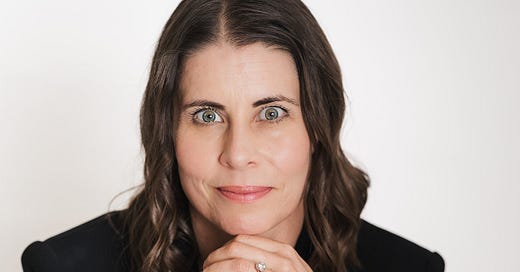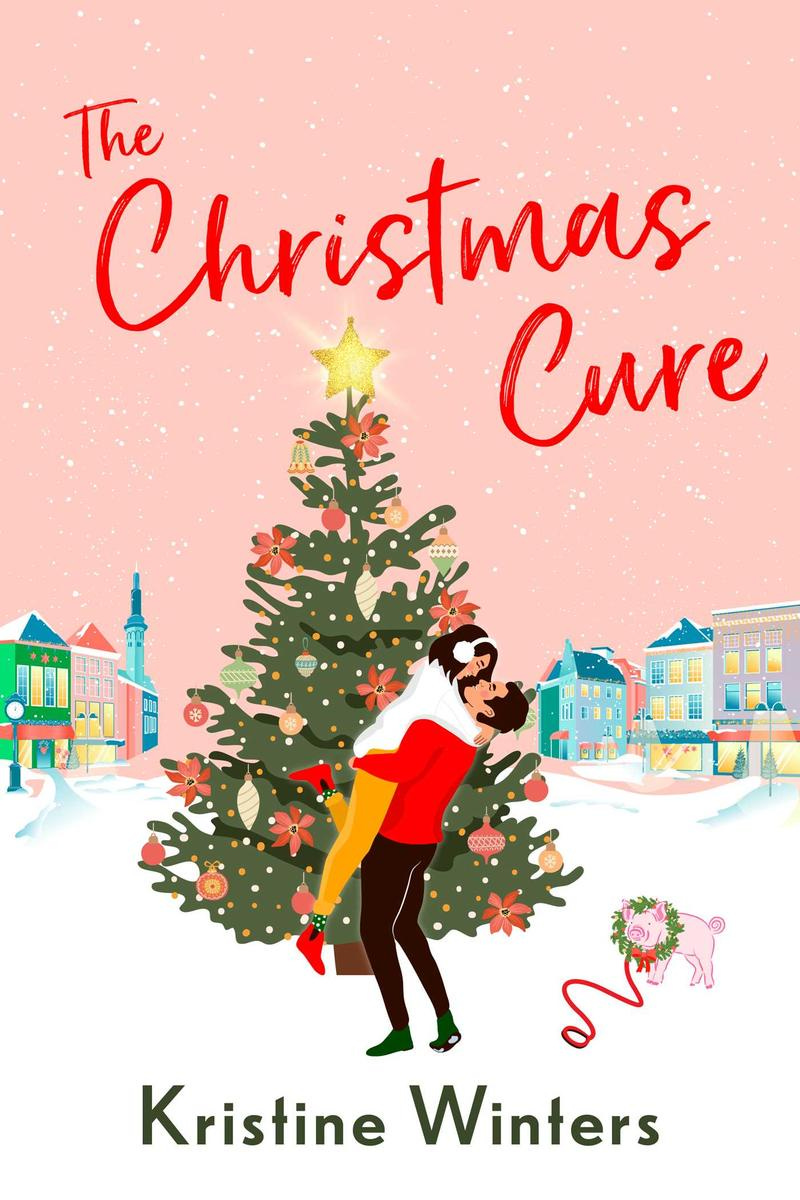Karma Brown is the author of six novels: the #1 international bestseller Recipe for a Perfect Wife, Come Away with Me (a Globe & Mail Best Book of 2015), Globe & Mail and Toronto Star bestsellers The Choices We Make, In This Moment, The Life Lucy Knew, and most recently, What Wild Women Do. She is also the author of non-fiction bestseller The 4% Fix: How One Hour Can Change Your Life, and co-authored two rom-coms under the pen name Maggie Knox. An award-winning journalist, Karma has been published in SELF, Redbook, and Chatelaine, among others. She lives just outside Toronto with her husband, teenage daughter, and a Labradoodle named Fred. Karma is currently working on two upcoming novels: The Christmas Cure, a holiday rom-com written as Kristine Winters (October 2025), and her debut horror novel, slated for publication April 2026.
Describe your writing space. What do you love about it?
I have many writing spaces. I have a tiny office with great light, soft pink-peach painted walls, and a simple desk stacked with notebooks, reading glasses and used coffee mugs. As I’m writing this I’m sitting in our living room, on a big cuddle chair (with the dog), watching a squirrel try to ransack our bird feeders. Sometimes I write out of the house—at a coffee shop or the library, in the doctor’s office waiting for an appointment, on the train or in the car. Usually I write with a coffee in hand (decaf in the afternoons). Sometimes I put binaural beat frequencies in my ears to help me focus. I am a disciplined, consistent writer, but where I write changes all the time.
What is the easiest and most difficult part of the process for you?
The easiest—and my favourite—parts of the writing process are brainstorming, researching, writing synopses (I love writing synopses), and editing. The most difficult—and my most hated—stage is drafting. It feels like changing 100 duvet covers (I also dislike this task) every day, for months on end. Except it’s a double duvet cover for a king-sized duvet, and it’s always inside out, and wrinkled. However, it’s a critical step in the process, and so I try to get through it without excessive procrastination. Typically I’m regimented about my writing schedule while drafting, aiming for an early (usually by 7 a.m.) daily word count to keep me on track.
Do you want each book to stand on its own, or are you trying to build a body of work with connections between each book?
“Brand” is a word frequently used in publishing, relating to an author’s style and body of work. While my first four novels were similar in terms of being branded as “emotional women’s fiction,” I’ve mostly eschewed that since. I’ve written three holiday rom-coms, a non-fiction book, a “domestic noir” novel, historical fiction, and have recently transitioned to horror. Personally, I find the idea of branding restrictive and not conducive to creativity. It’s all about the idea for me, and the challenge of trying new things. After every finished book, I’ll usually say to my agent Carolyn Forde—who is amazing, and up for anything—“I wonder what I’ll write next?”
Best advice you’ve ever been given.
Don’t read the reviews. Hands down, best advice I’ve received (and taken).
What books are you currently loving?
I recently finished an exceptional collection of short stories about the complex lives of women called DEATH BY A THOUSAND CUTS by Shashi Bhat, which was longlisted for the 2024 Giller prize. Also, the funny, quirky and poignant marriage-meets-hostage hijinks JANE AND DAN AT THE END OF THE WORLD by Colleen Oakley, and the brilliant speculative, AI-focused novel HUM by Helen Phillips, who is an auto-buy author for me (and never lets me down).
If you were a bookseller what 5 books would you hand-sell to readers and why?
In no particular order…
For the Speculative/Body Horror fan: TENDER IS THE FLESH by Agustina Bazterrica, which is based on the premise of cannibalism being legalized (after a virus wipes out the animal population). It is unapologetic, horrifying and forces you to examine your beliefs.
For those seeking wisdom/understanding: EMBERS: ONE OJIBWAY’S MEDITATIONS by Canadian treasure Richard Wagamese, which is a spiritual collection of musings and stories. This one is never far from reach for me, and is both grounding and inspiring.
For the sci-fi/time-travel/epic romance fans: THE TIME TRAVELER’S WIFE by Audrey Niffenegger. A genetic disorder means Henry time travels, but it’s entirely out of his control. His wife Clare, an artist, is forced to live through these unexpected absences, never knowing when he’ll return. It’s the most epic love story I’ve ever read, somehow both heartbreaking and life-affirming all at once.
For non-fiction readers: THE IMMORTAL LIFE OF HENRIETTA LACKS by journalist Rebecca Skloot, about the immortal cell line (called HeLa) and the Black woman it was stolen from in the 1950s. This impeccably researched book intersects race, medical science, and ethics, and I could not put it down.
For historical fiction fans: EUPHORIA by Lily King, is a novel based on anthropologist Margaret Mead (and her husbands), and is set in 1930s New Guinea. Lush, evocative, and fascinating historical fiction, this one offers a unique and refreshing setting and subject.
What advice do you have for writers?
Advice is tricky, because what works for one person won’t necessarily work for another. Having said that, I believe if you approach an idea with curiosity—plus a commitment to see if it has “legs” (meaning, there’s enough story to put words on paper)—you can’t go wrong. Oh, also: don’t read the reviews!
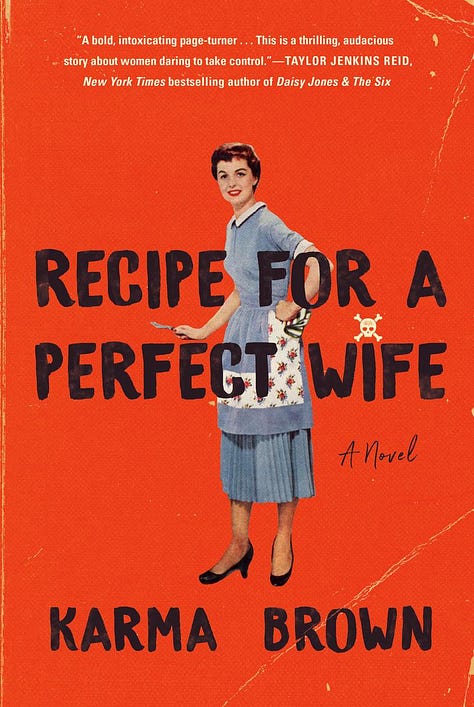
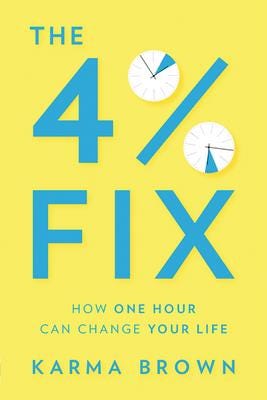
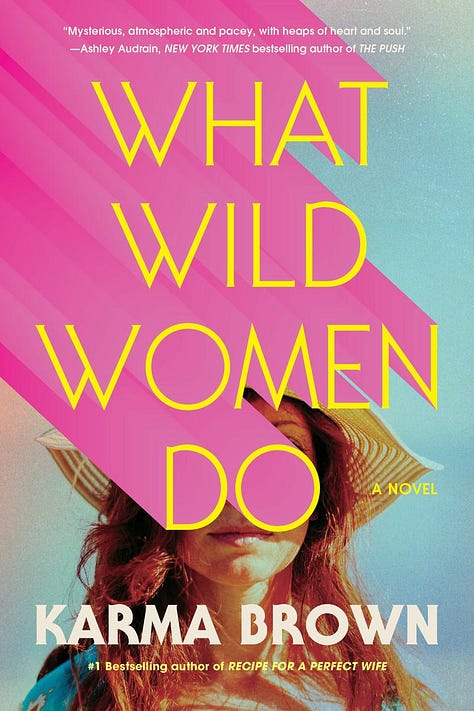
Thank you Karma.

